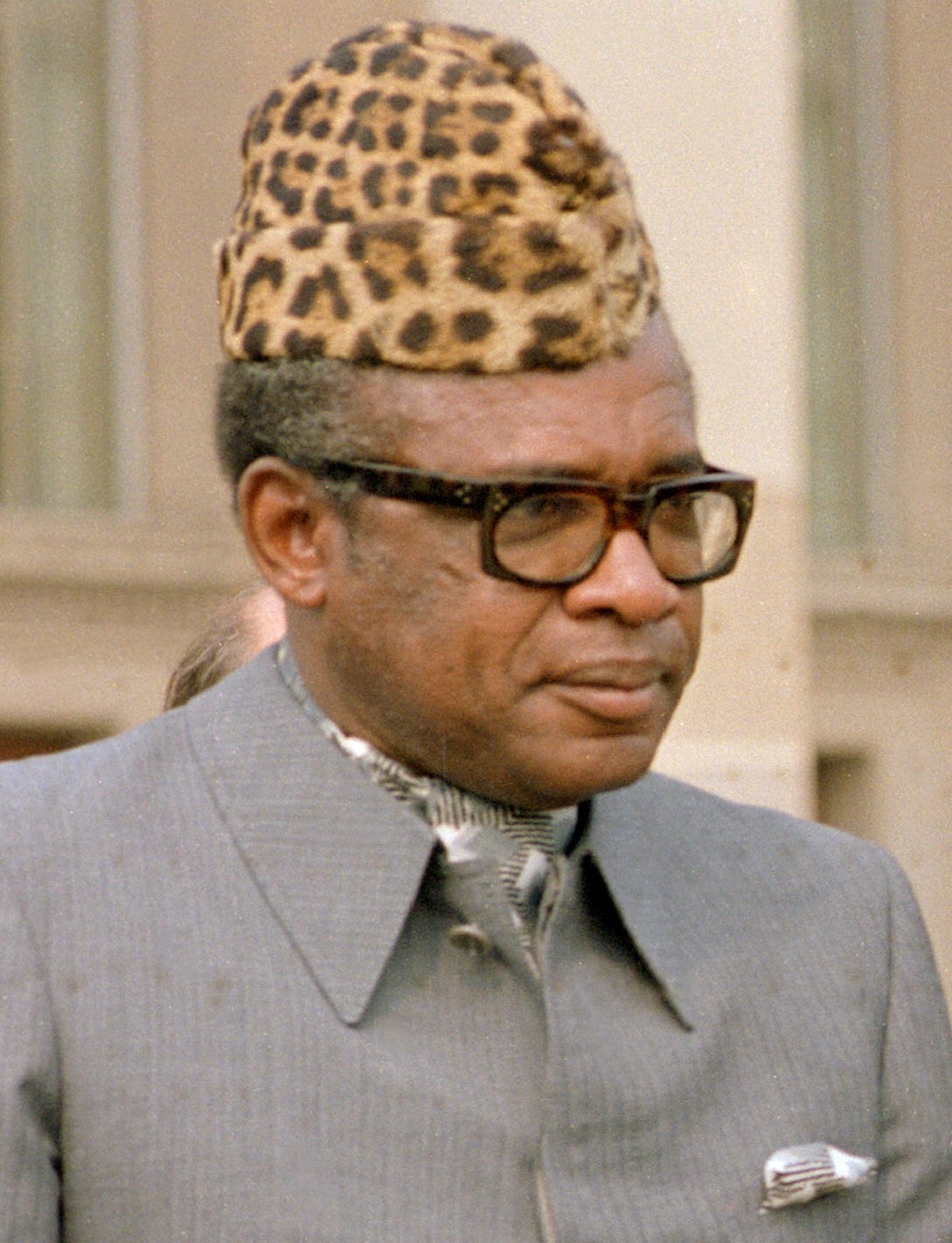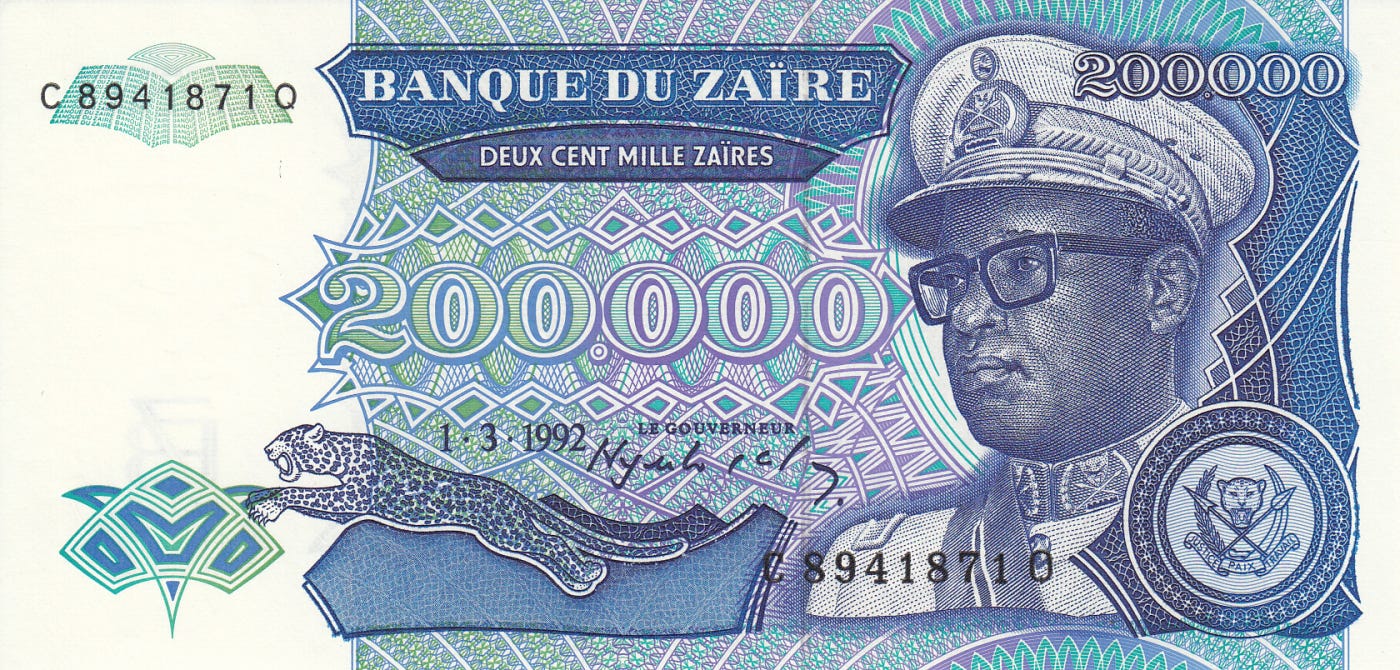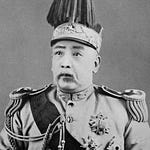
Pedro Monaville is a historian of modern Africa and an associate professor at McGill University who researches colonial and postcolonial Congo, revolutionary movements, and the connections between art and history, among other subjects.
He is the author of Students of the World: Global 1968 and Decolonization in the Congo, which one review called “a fine-grained examination of the radicalization of Congolese students, their slow maturation during the fin d’empire…that put them on a collision course with the dystopian regime of President Mobutu.”
Mobutu Sese Seko was the president and dictator of Zaire from 1971 to 1997. He changed the country’s name from Congo to Zaire as part of an “authenticity campaign” to remove colonial influence. In some ways, he was a cartoonish dictator, with palaces, gold tchotchkes everywhere, yachts, fleets of limousines, a personality cult, and self-bestowed titles such as “Father of the Nation,” “Helmsman,” and “Supreme Combatant.” Despite his anti-colonial ideological rhetoric, Mobutu controlled an incompetent government that caused misery and hunger for ordinary people.
But above all, Mobutu was corrupt, and he saw a phenomenal business deal for himself in the proxy conflicts and power plays in Africa during the Cold War. He presented himself as a bulwark against communism, which allowed him to loot his country and commit human rights abuses with the tacit blessing of the U.S. In 1988, the New York Times cited a State Department estimate of Mobutu’s personal wealth: $5 billion (equivalent to $13.65 billion in 2025).
Mobutu surrounded himself with corrupt lackeys, whose loyalty was partly assured by fear, and partly by his blessing of their place at the trough. He is said to have once admonished officials whose corruption was becoming excessive: “If you want to steal, steal a little in a nice way, but if you steal too much to become rich overnight, you will be caught.”

In the podcast we discuss:
Mobutu’s rise from journalist to military chief to dictator
Congo’s brutal exploitation under King Leopold II, Belgian colonial rule, and the assassination of independence leader Patrice Lumumba in 1961
Mobutu’s early legitimacy building: “authenticity” campaigns involving cultural nationalism, renaming cities, and economic nationalization
The Congolese student movement, and how it developed into a credible opposition force through the 1960s
Student identity and elitism
Systematic violence against intellectuals: The June 4, 1969 student massacre in Kinshasa and the destruction of universities
Mobutu’s control mechanisms: His use of complicity, unpredictable cycles of punishment and reward, and keeping elites “on their toes” to maintain power
Language and cultural politics: The role of Lingala as a unifying language through military, music, and Mobutu’s political communication
Mobutu’s tactics and current threats to higher education and intellectual freedom in the United States
Congo’s ongoing conflicts
The Rhyming Chaos podcast is produced by Jeremy Goldkorn and Maria Repnikova, and edited by Cadre Scripts. The theme music is Paper Boy, composed and performed on the guzheng by Wu Fei. Our closing music is Erik Satie’s Gymnopédie No. 1, arranged and performed by Wu Fei. Our cover art is by Li Yunfei.
Please subscribe wherever you get your podcasts, leave us a review, and if you like what we’re doing, please take out a paid subscription at rhymingchaos.com.













